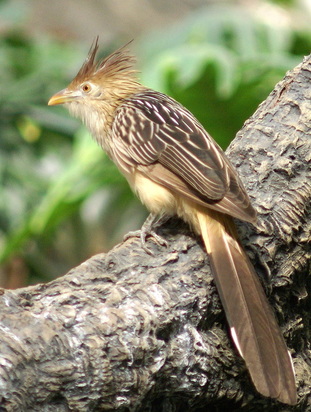To be able to make judgements about their route strategies, the cuckoos must be able to mentally balance the costs and benefits of different routes, which requires knowledge of their current location in relation to potential goals, and the distances to those goals. The researchers are hoping that future technological advances will allow for the creation of tags small enough to monitor young cuckoos on their first migratory journey.
Although this is not true of all cuckoo species, European Cuckoos are especially valuable for studies of bird navigation because they are "brood parasites"--which means adults lay eggs in the nests of other birds, who then raise the cuckoo chicks as their own. That means young cuckoos grow up without biological siblings or parents, and thus do not learn their migratory pathway from other adults of their species. Flying alone at night, they rely "entirely on instincts, inherent abilities and the experiences gained later in life." You can read the press release from the University of Copenhagen here, which includes a video rendering of the normal cuckoo migration routes from Europe to Africa and the routes taken by the relocated birds.
0 Comments
Leave a Reply. |
Field Notes
Archives
July 2021
Categories |
|
Partner with us! We are always looking for new schools, scientists, and non-profit organizations to partner with. Please contact us here to start a conversation.
Hear from us! Sign up for our newsletter to hear about what is happening at Field School as well as upcoming offers and specials. |


 RSS Feed
RSS Feed